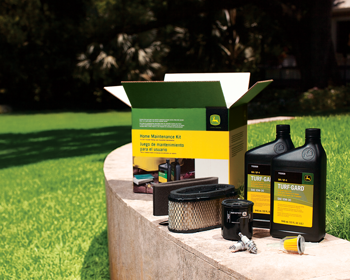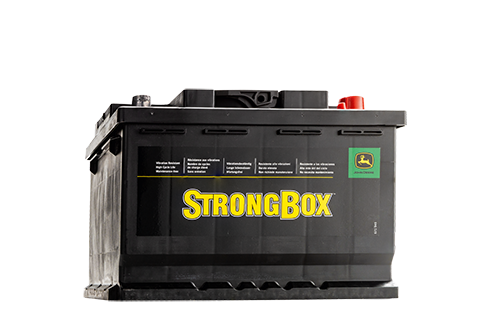Before the first mow of the season, here are a few things you should check. These are the most common reasons why your lawn mower won’t start:
Engines

Just like your car, equipment requires regular oil, oil filter and fuel filter changes if you want your engine to last. While manufacturer recommendations vary, most advocate changing the oil at regular service intervals or at least annually. A Home Maintenance Kit from John Deere has all of these in necessities in one convenient box. If you prefer not to do your own maintenance, your local Heritage Tractor service department will be happy to assist.
Fuel
Most gasoline only has a 30-day shelf life. Gasoline from your local gas station pump is designed for automotive purposes, not for small engines. If your fuel goes bad, empty the tank. Don’t try to run it out as it could cause your carburetor or fuel injectors to gum up or get clogged. We recommend using a fuel stabilizer for all small engines. It will not fix bad fuel, but it will keep good fuel from going bad. This is especially important over the winter months. If you think you have a fuel issue and don’t want to attempt to fix it yourself, call your local Heritage Tractor service department to schedule your repair. Reminder: When storing fuel for your equipment, only use approved storage containers.
Battery

Customers often service their equipment in the fall or winter and then put it away until spring. When they go to start the equipment in the spring, the battery is often dead. In order to prevent this, we suggest putting a trickle charger on your battery. The cold weather is hard on batteries and will drain them, causing permanent damage. A trickle charger hooks up to the battery when not in use and prevents battery drainage and damage.
Blades
While dull blades are likely not the cause of a mower that won’t start, it is important to sharpen your blades on a routine basis. A dull mower blade will shred the grass, causing a frayed or brown appearance and creating entryways for lawn disease.
Because a regularly maintained well running piece of equipment makes your jobs easier, it’s good to keep a calendar to schedule maintenance checks and organize service records. Always refer to your operator manual for routine maintenance schedules and technical specifications. If you would rather have it done by a trained professional, your local Heritage Tractor service department is here to help.

